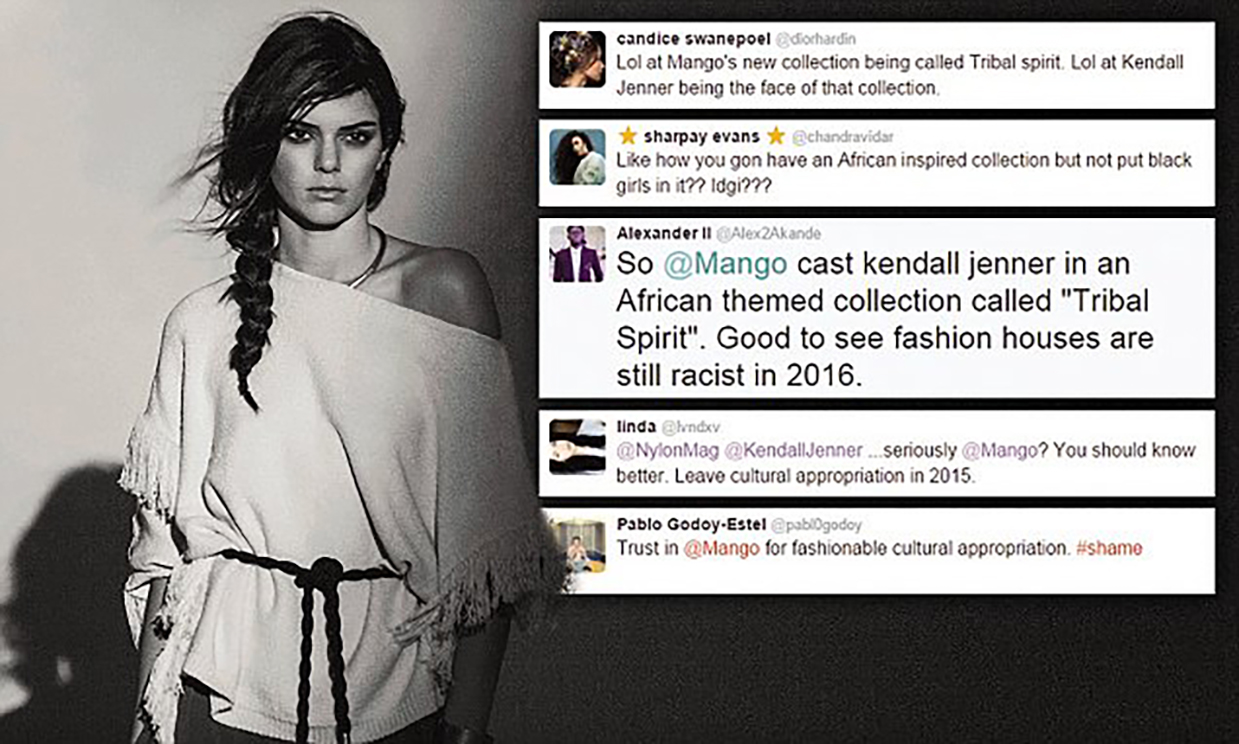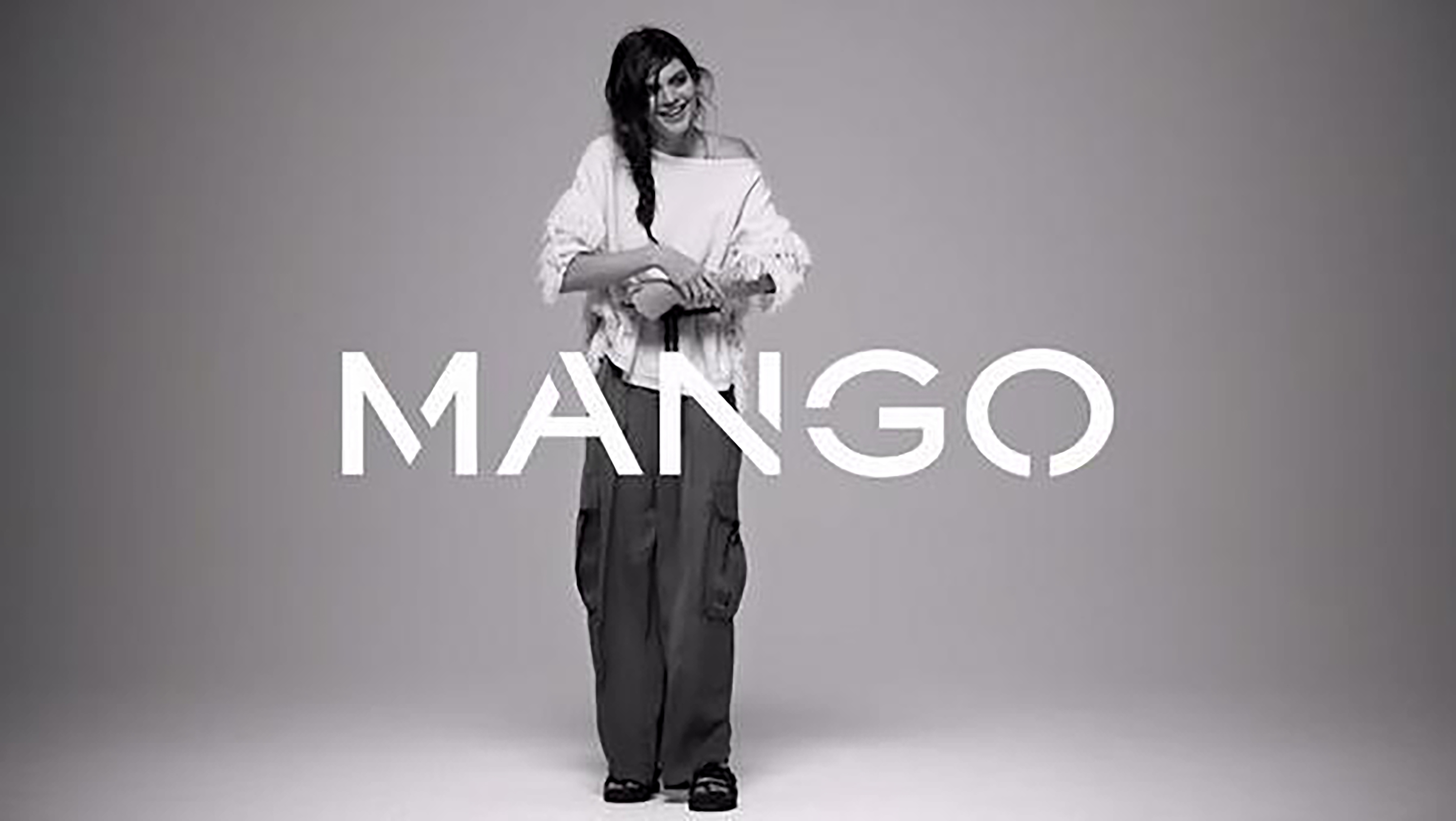Sophia Moghal, BA History and Southeast Asian Studies
Deciding to click on the following headline on a news site led me to discover Mango’s newest campaign. The title: “Kendall Jenner’s New Mango Campaign Shows A Side We’re Not Used To Seeing”. “Tribal Spirit”; is apparently the side we haven’t seen before and it features clothes that “would be a total hit at Coachella”.
What struck me was the apparent lack of concern for the quite obvious cultural appropriation present here. There is no mention of it either in the list of results produced from a google search of “Mango’s tribal spirit”. As stated by the company’s Vice President Daniel Lopez, the collection is “inspired by the African savanna”. InStyle took this to mean “sleek black leather minidress with plenty of fringe.” I see three aspects that need to be addressed. The issues here not only concern the campaign itself but highlight wider concerns I have with the fashion and beauty industry as a whole.
The first is use of a white female to model a collection inspired by a culture to which she has no connection. I will admit that it took further consideration and reading for me to become aware of an obvious way in which the use of Jenner was problematic. She is a white American, and the collection is inspired by the “African savanna”. So why isn’t someone of that heritage modelling the clothes? Mango’s answer to this was disappointing and disrespectful to consumers of this industry. Jenner “as a model” is “very professional, she works fantastically” stated Lopez. This confuses me as I am aware of, as I’m sure many are, of the existence of women of African heritage that are not only models but do so professionally and “fantastically”.
As expressed in the comments on Mango’s Instagram post; ““Where are the Native American and African models… because I know there are many of them out there to represent us.” Herieth Paul has worked with Stella McCartney and Tom Ford. Roberto Narciso has worked with Banana Republic, Louis Vuitton and Elie Saah. Ajak Deng has worked with Givenchy, Lavin and Chole. This is a fraction of the incredibly talented models that might easily have replaced Jenner.

The second issue to be addressed is the title and concept itself. Mango has seemingly decided to condense a vastly diverse culture and continent to simply “tribal spirit”. To be clear, it is not the case that artists and designers in the fashion industry should not be inspired by other cultures. Countries and the people that inhabit them are the site of vast heritages and traditions of beauty that are beyond doubt fascinating to explore and learn about. Drawing inspiration for the creation of art can be beautiful, but problems arise once the respect and acknowledgement of that culture is lost.
In an interview with EverydayFeminism, Susan Scafifi, the director of the Fashion Law Institute at Fordham University made the following comments, “taking intellectual property, traditional knowledge, cultural expression, or artefacts from someone else’s culture without permission” sums up well the issue at the heart of the trend that persists today. Further to this, as is often the case, is that “sampling of cultures” is done by the “dominate group taking from marginalised groups, tinged with leftover dynamics from colonialism”.
What has caused me the most disbelief is the reaction to this campaign in the media and within the industry itself. Why has there not been a larger outcry to this insensitivity? It would seem that a lack of significant backlash has meant that Mango feels no need to withdraw the campaign or acknowledge their wrong doing on this issue; a step that is disappointing to see from this company.
A particularly insightful article was a piece featured in Marie Claire with the title: “Here’s Why the Internet is Upset Over Kendall Jenner’s Latest Ad Campaign”. Whilst the article itself is not directly critical or particularly opinionated on the choice of model or the campaign as a whole; the headline and the opening quote; “So what has the Twitterverse taken issue with?” sends a message of a different kind. Specifically that reaction has been unnecessary. It implies that those using the internet, specifically Twitter users who use this platform to express their anger are unjustified, not of importance and would usually create an issue where there is none.
A final comment should perhaps be made with regard to the way in which this campaign displays a favouring of a particular beauty standard. This occurs on an alarmingly regular basis. It can easily be argued that Mango choose Jennerbasedontheideathatherbeautywasone which fit the prevailing concept of beauty. They might have chosen a women of African heritage, had they thought this was beautiful. Was it really that she was the most professional or was she really just the model the company believed to be beautiful for their perceived consumers? This deserves a more in depth discussion
Promoting one perception of beauty over another, and to do so whilst claiming to be inspired by a culture whose beauty is not celebrated in the same way as the clothes is infuriating, disheartening and distressing.
